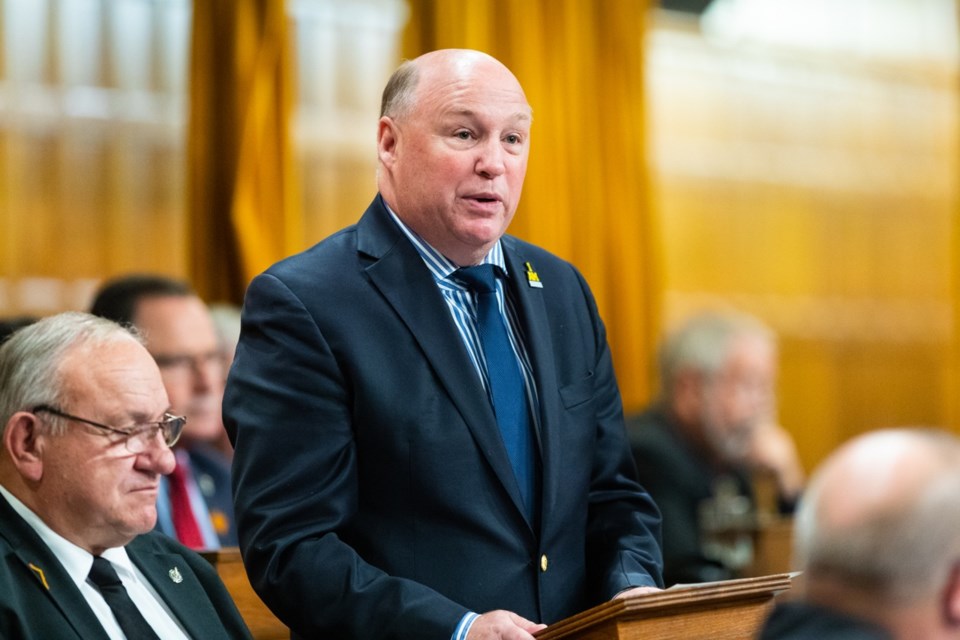A few members of Parliament who recently toured energy-related facilities in the Estevan area came away impressed with what they saw, particularly when it came to the mining operations.
Souris-Moose Mountain MP Robert Kitchen brought Conservative Party caucus members Ed Fast, who is the shadow minister for Environment and Climate Change, and John Barlow, the shadow minister for employment, workplace development and labour.
In addition to touring the Westmoreland operations, they visited the Boundary Dam Power Station and its carbon capture and storage (CCS) facility, the nearby Aquistore site that stores carbon dioxide, and the carbon capture test facility at the Shand Power Station.
Finally, they met with the Deep Earth Energy Production Corp. about their work to bring Canada’s first geothermal facility to Estevan.
“We had a great two days talking with the manager at the Westmoreland coal, and educating these people, my colleagues, on this very aspect,” said Kitchen. “It’s something that I’m very passionate with my colleagues in convincing them about the value of carbon capture, and therefore the value of still utilizing coal,” said Kitchen.
At the mines, they toured the mine site, and despite the rain that day, they saw the area, and the heavy equipment that is used in mining.
Fast and Barlow were impressed with the facilities they saw and the efforts of the people who work at the mines.
They were also impressed by the enormity of the equipment, and how the mine and the power plant workers look to reduce emissions.
When they talked with Beth Hardy from the CCS knowledge centre on the recent feasibility study to retrofit the Shand Power Station with CCS, they were also impressed.
“We actually could have a carbon-neutral plant,” said Kitchen.
Kitchen described the people who work at the mines as hard-working individuals who fill middle-class jobs. They’re trained and knowledgeable in what they do.
“They have the training in the present day to do the skills that they have learned, and to implement them with what they do,” said Kitchen. “They’ve learned how to use that equipment. They’ve done upgrades as they advance from whatever position they’re doing.
“These are things that we need to continue to recognize. And these people want to just work. The mining companies are working as hard as they can to try to ensure that.”
Many people he talks to are concerned about the regulations being thrown at them by the present Liberal government.
“As we move forward, they don’t have the certainty of where they’re going. How are they advertising for filling jobs? How are they ensuring that they are able to do what they need to do when people are scared for where this might lead?”
Kitchen’s son Stephen is a geologist at the mines, and back when he was a chiropractor, many of his patients were people who worked at the mines.
“I will promote the great work that they do in order to provide power for Saskatchewan people. There’s a tremendous benefit for what they do in our community, not only for the work they do at the mine, but they’re always stepping forward,” said Kitchen.
The mines have been invaluable supporters of the United Way Estevan and many other causes in the area.
Kitchen said he has been trying to promote the work of the coal mines and power generation in his riding since he was elected. Coronach, home to the coal-fired Poplar River Power Station, is on the western edge of the riding.
The MP also made a presentation in the House of Commons about CCS and coal on Tuesday afternoon during a debate of reducing emission and bringing down average global temperatures.



